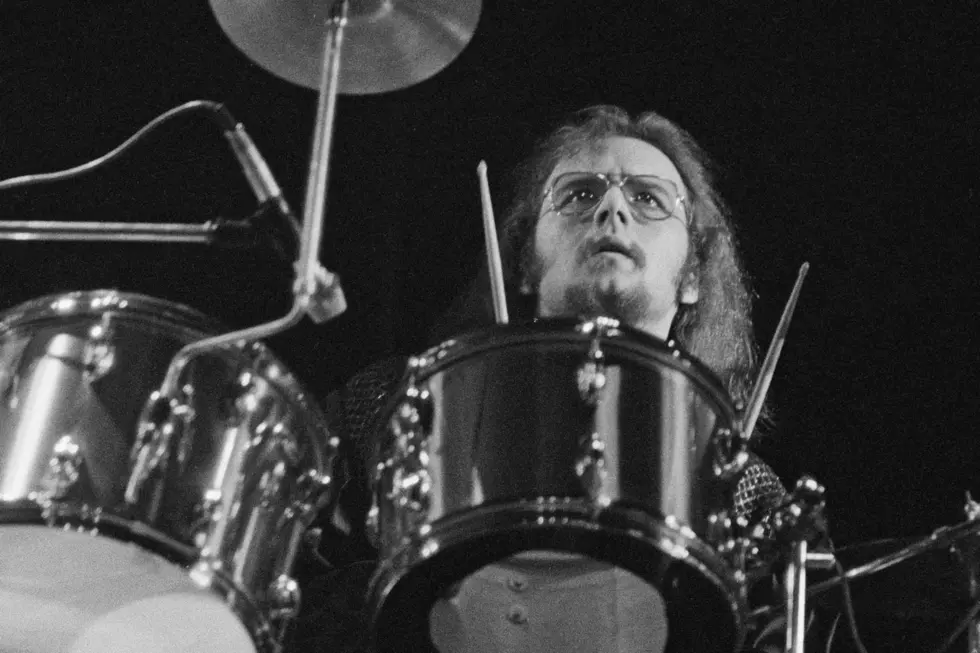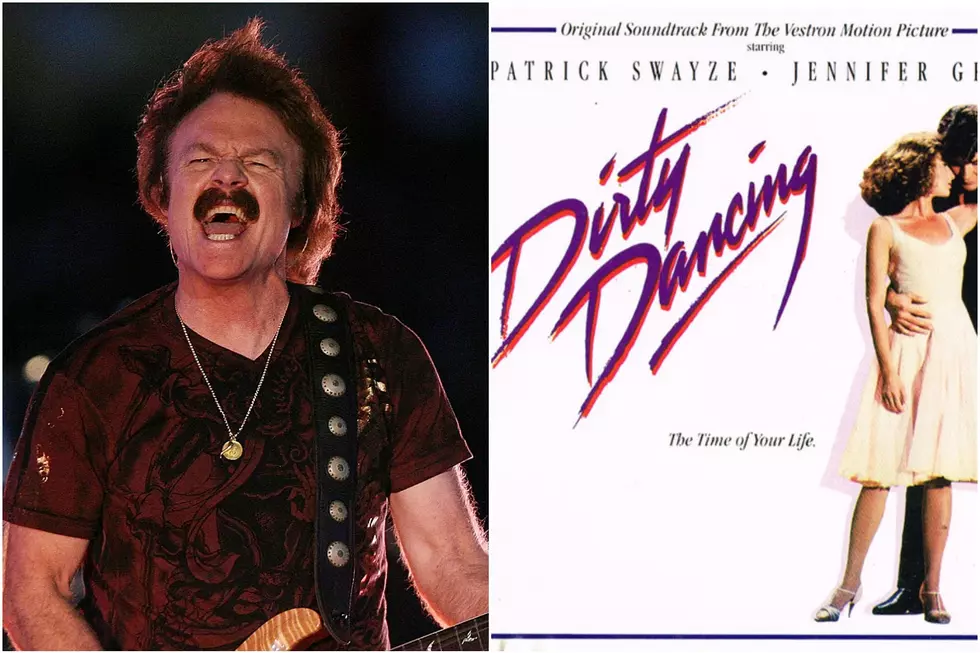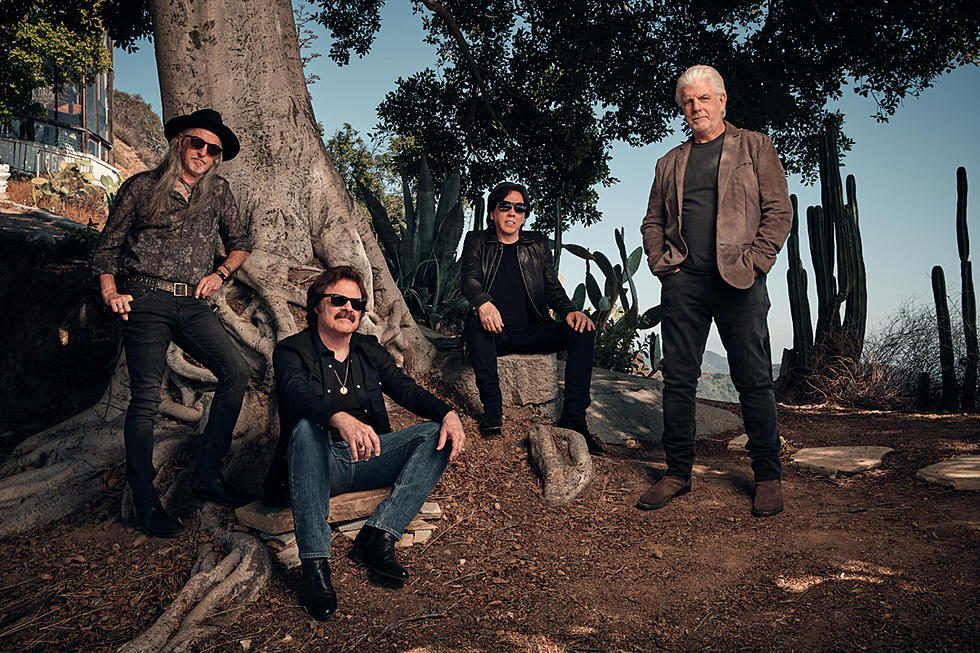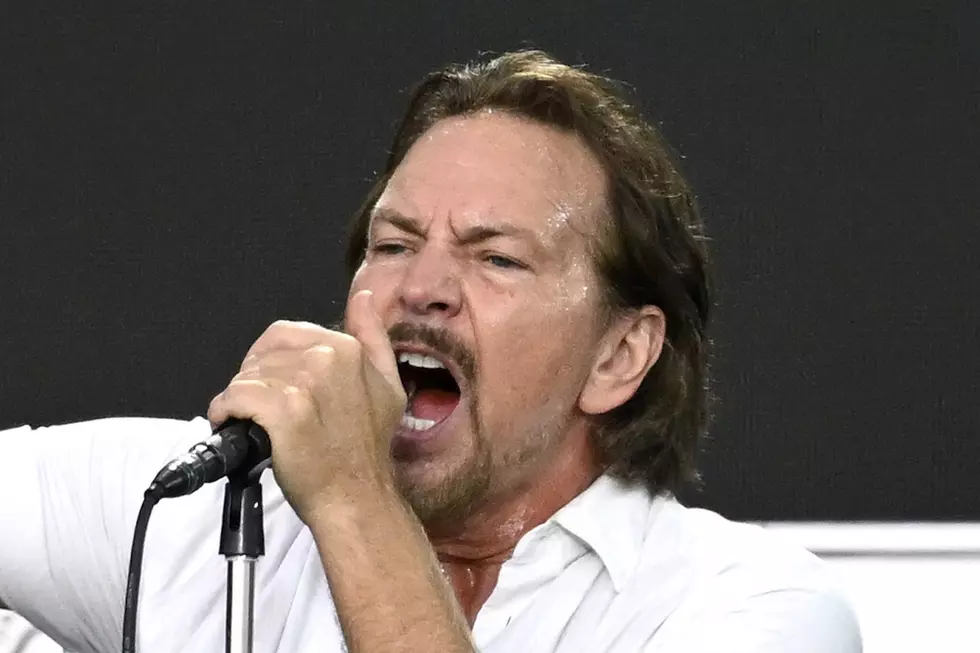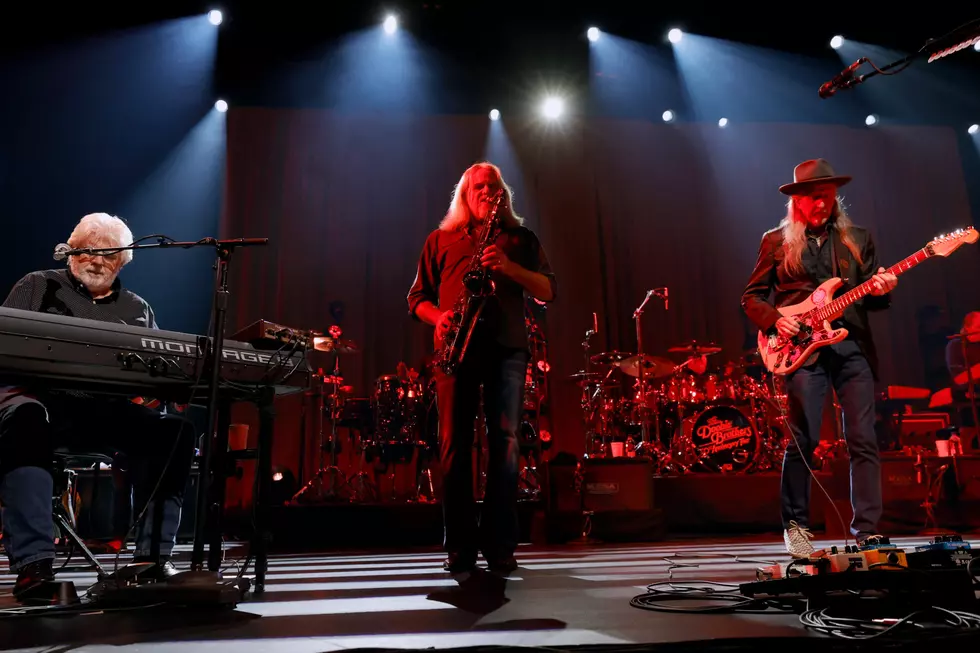
Patrick Simmons Hails ‘Larger Than Life’ Doobie Brothers Reunion
The Doobie Brothers wanted to do something special to mark the occasion as their 50th anniversary approached. So they announced plans to tour with celebrated former Doobie Michael McDonald for the first time in 25 years. The pandemic delayed their original dates, but they finally got on the road for the first round of shows in 2021.
We spoke with guitarist and vocalist Patrick Simmons as the Doobies were getting set to launch the latest dates with McDonald. They'll be sharing the stage through the fall.
During the first part of our conversation with Simmons, he discussed meeting the Rolling Stones, the music of Nirvana and other topics. Here's the rest of our discussion, featuring his thoughts on the current reunion as well as his memories of growing up with the music of Bob Dylan. There are a wealth of additional stories to be found in Long Train Runnin': Our Story of the Doobie Brothers, the new memoir Simmons wrote with longtime bandmate Tom Johnston regarding their long career with the group.
It's a really special thing that the Doobies have been playing these shows with Michael at long last, over the past year.
The band’s sounding really good. The songs are really fun to play. Michael’s stuff, because we haven’t played it for so long – some of our guys have hardly played it at all, of course – but I hadn’t played many of his tunes for a while, so that’s just fun. He writes great songs and it’s so much fun. The changes are really interesting. You know, you talk about great lyricists, both Tom and Mike just write very compelling songs for me personally. It was nice to get back into Mike’s stuff, as well. We have a really great band and a great production. We’re kind of stepping it all up, because we can. Because of having three of us together singing all of our songs, we’re able to command a little higher turnout, so we’re rolling that back into the production and sound and making it a great show for the audience. We were limited on our time in Las Vegas. We’ve been playing two and a half hours. They wanted us to bring it down to two hours because I guess they want people to get out on the floor and get restarted gambling again. They were trying to get us to bring it down even more, but I said, “No, no, we’ve got to give the audience a good show.”
You've been friends with Michael personally for a long time. What's your perspective on this current reunion? What does it mean to you now?
You know, it’s kind of cool. Of course, Tom and Mike together doing these shows is really the payoff. We did this before, years ago. I think Tommy was sort of hellbent on maybe doing some solo stuff. He wanted to have his own band and just be the focal point. I think he kind of got that out of his system. For me, I’ve always been in bands, so I’ve kind of never been – well, I guess I played by myself in the early days and I’ve done some solo stuff around, but I’ve always been a guy who likes to play in bands. I never really cared one way or the other. I always figured, if I’m in a band and I want to do something individually, I can go out and do it. Everybody has their own needs or whatever. I think both Tom and Mike have had this need to have their own thing and be in the spotlight, if you will. I think they’re in the spotlight in this band, but in their own heads, they were looking for something.
You know, Mike’s had a very successful career on his own but in terms of the perception, perhaps with the public, of the Doobie Brothers, [there’s] strength in numbers or its greater than the sum of its parts, or something. You know, people perceive the Doobie Brothers as being this larger-than-life entity. So having all of us together doing these shows, I think creates more of a mystique. People are getting it, they realize, “Hey, I’ve gotta go see these guys. Gosh, it was the ‘70s and now they’re in their 70s!” So they’re coming out, some out of curiosity and some because they’ve been longtime fans. I think this particular tour is probably something that people will remember for all of the reasons that I just expressed. Having all of these great songs that we created as a band and have not been able to really get out there and play for people for such a long time, together, I think it’s something kind of unique. I know people are going to carry it with them for a while, anyway. I know for me personally, it’s just plain fun. It always has been, but this is one of those memorable moments in my life and career, having these two guys playing together with me. It’s certainly something that I’ll carry with me forever.
You write about Bob Dylan in your new memoir. What do you think you gleaned from Dylan at the time that left its mark on you as an artist?
You know, I loved the music when I heard it. There was something that connected for me, being kind of an old folky [person], at least from my beginnings. I really liked that. When I first started as an early teenager, I was 14 or 15 and Bob Dylan actually had songs that others were performing. I hadn’t ever heard his music [before that]. So all of the stuff that I heard was through other artists. I just thought that the songs were great. You know, there was always [that moment], “Here’s another song by Bobby Dylan.” I would hear those and think, “God, that’s such a great song. Who is that?” When he put his records out, it was like, “Wow.” It didn’t seem like those songs would have come from this guy. Then, you’d start looking into the newer music that he was producing and it was these long song-poems that were super alliterated and in that craggy voice. It took me a little bit – and probably a lot of people – to even appreciate what was going on there. Then, I think because [I had spent some time] growing up in California and the thing with the beatniks, I thought that was just something cool. With Jack Kerouac and [his book] On The Road, and [fellow Beat Generation author] Neal Cassady and all of that stuff, that music coming from Dylan kind of reminded me of that whole scene.
With the guys sitting on the stage, somebody’s playing the flute and somebody’s playing the bongos and somebody’s reciting poetry. It was all a seamless kind of journey for me. I don’t know if it totally influenced me in terms of how my songwriting went, but I knew one thing: rhymes didn’t have to be exact because that’s the way this great songwriter was writing songs. Everything didn’t have to have a perfect rhyme, it just had to have a sound or a feel or a place within the song as it went by to help it move in terms of the feel of it and the sentencing of it. It was just so masterfully crafted that I just loved it. I don’t really think in terms of my own songwriting that I could ever compare anything I ever wrote to something that Bob Dylan wrote but you know, as a fan, I could sit in my room and on a rainy day, listen to album after album from The Freewheelin’ Bob Dylan to Bringing It All Back Home. Whatever I was playing, it just worked for me. It was one of those great moments in my life where I could just sit and listen. You know, I’ve always been a music fan before anything else. So music was a way for me to just enjoy moments where nothing else was going on – or I didn’t have anything going on at that moment. I could just sit and enjoy that music for all it was worth. Dylan is that kind of music. There’s so many levels to it. It just kind of captures you and takes you into this other realm that very few other artists, in my opinion, can take you to.
44 Famous Records You Probably Didn't Realize Were Covers
Why Don't More People Like This Bob Dylan Album?
More From KKTX FM
